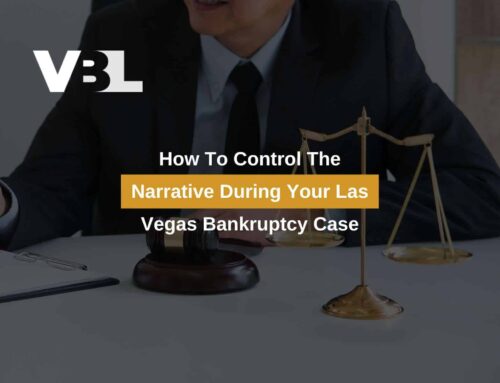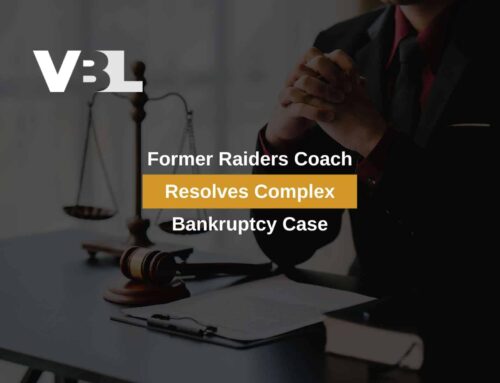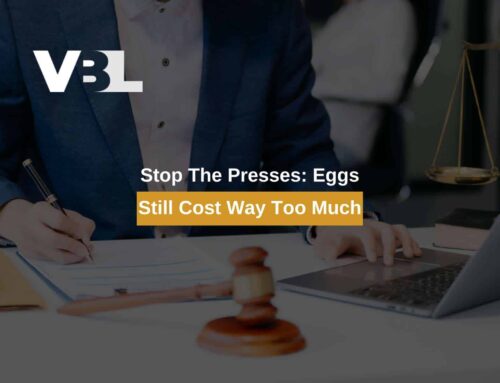Nevada Bankruptcy vs. Offer In Compromise
Debt is so much more than a balance owed to a creditor. It can mean stress and embarrassment about the inability to pay, negative marks on your credit report, and late fees and interest racking up the bill. When debt reaches a certain point, your phone will be ringing off the hook with debt collectors seeking payment. They may even proceed with a lawsuit, wage garnishment, vehicle repossession, home foreclosure, and more. Many people are aware that bankruptcy can help with these types of situations, but are reluctant to go through with filing. There may be other options to deal with debt that don’t have the long-lasting implications that bankruptcy has. In some situations, an offer in compromise may be more appropriate than filing for bankruptcy. Read on to learn more about the differences between the two, and if you need additional information, call our Las Vegas bankruptcy firm for your free consultation at 702-370-0155.

What Is An Offer In Compromise?
“Bankruptcy” is a term heard far more frequently than “offer in compromise.” An offer in compromise can be used specifically to address tax debts to the IRS. It is a settlement agreement with the IRS to pay a reduced sum to satisfy your back taxes.
Not everyone who files an offer in compromise will be approved by the IRS. There are certain factors the IRS will consider when determining whether or not to accept an offer in compromise. In fact, there are certain factors a debtor must meet just to apply to file an offer in compromise. The applicant must be able to prove that their income, expenses, assets, and equity make them unable to pay their tax debts. The applicant must have filed all of their taxes, and can’t be in an open bankruptcy when applying for an offer in compromise. However, it is acceptable for the filer to have filed an extension on their current tax year while in the application process.
To apply for an offer in compromise with the IRS, the debtor must fill out Form 656-B. Business owners applying for offers in compromise may have to fill out additional forms. Unless the debtor qualifies for a fee waiver, they will need to pay the filing fee of $205 at the time of filing the offer in compromise. This fee can be waived if the applicant meets certain financial requirements. The application will either be completed as a request to pay in a lump-sum payment or in periodic payments. If the applicant requests to pay by lump sum, they must also include 20% of the payment with their application. If the offer is accepted, the applicant will be notified and must pay the rest of the balance in 5 installments or fewer. Applicants wishing to pay off their balance with periodic payments must submit their first proposed payment with their application.
During the evaluation process, the IRS may suspend collection activities, such as wage garnishment. It may also serve the applicant with a Notice of a Federal Tax Lien. If the applicant has other agreements with the IRS, they can suspend payments on those plans and should pay per the terms of their proposed offer in compromise until the evaluation period is complete. You can find more information about making an offer in compromise to the IRS here.
What Is Bankruptcy?
Bankruptcy is a legal mechanism meant to help those struggling with debt that has been around for centuries and exists in countries across the world. It allows debtors to address debt with protection and supervision from the court. Most people file for either Chapter 7 or Chapter 13 bankruptcy. Chapter 7 bankruptcy clears some types of debts in a matter of months, but filers must meet certain income and asset limitations, as well as accept some of Chapter 7’s other disadvantages. Chapter 13 turns debts into a payment plan that may allow for some unsecured non-priority debts to be discharged at the end of the plan. It is quite the commitment as it lasts either 3 or 5 years. However, it also allows debtors to pay off tax debts that don’t meet the requirements to be discharged in bankruptcy.
While Chapter 7 and Chapter 13 work quite differently, they have many things in common. A trustee is assigned to both types of cases to review the petition and supporting documentation, manage inquiries from creditors, conduct hearings, and more. Both Chapter 7 and Chapter 13 debtors must complete two online credit counseling courses- one before filing, the second within 60 days of the 341 Meeting of Creditors. The 341 Meeting of Creditors is a mandatory hearing that both types of debtors must attend. It should occur approximately 30-45 days after filing the bankruptcy petition. Creditors can show up to this hearing and ask questions about the bankruptcy or object to their debts being discharged. They will also have 60 days after this hearing to voice such objections through an adversary proceeding. For more information about bankruptcy, contact our firm for your free consultation at 702-370-0155.
How Can Chapter 7 Bankruptcy Help Me With My Taxes?
Chapter 7 bankruptcy only clears debts that are unsecured and non-priority. For taxes to be considered unsecured, non-priority debts, they must meet a number of requirements, including:
- Tax debt must be at least 3 years old
- Taxes must have been filed for at least 2 years
- The tax debt must have been assessed at least 240 days prior
- No fraud
Which Is The Best Option For My Tax Situation?
There are several factors that will affect whether a bankruptcy or an offer in compromise will better help your tax debt situation. One of those is whether your tax debts meet the requirements to be unsecured, non-priority debts that can be wiped out along with credit cards, medical bills, and more. Someone who has newer debts or debts that otherwise won’t be discharged in a Chapter 7 bankruptcy might not be that much better off paying them in a Chapter 13 bankruptcy. If so, an offer in compromise could offer more advantages than filing for bankruptcy.
However, someone who owes debts to the IRS could very well owe debts to several other creditors. Credit cards and medical bills are the main debts that taxes that meet the discharge ability requirements will be equivalent to, but other examples of unsecured non-priority debts include repossession deficiencies, unpaid utility bills, personal loans, and more. You should discuss all of your debts in full with a bankruptcy attorney to determine if they can be discharged in bankruptcy, or if an offer in compromise might be a better option.
Can I File Bankruptcy After An Offer In Compromise?
It’s entirely possible that someone struggling with debt may accept an offer in compromise, but soon find the need to declare bankruptcy as well. Bankruptcy can deal with debts that an offer in compromise can’t, like credit cards and medical bills. But if a debtor files bankruptcy while actively in an offer in compromise with the IRS, they will need to continue paying per the terms of that agreement- it will not be wiped out by bankruptcy. Therefore, it’s important to do your research before filing an offer in compromise, or it could essentially waste money and make an inevitable bankruptcy less effective.
Contact Our Nevada Bankruptcy Lawyers For Help Deciding Between Bankruptcy & An Offer In Compromise
Making the wrong choice between bankruptcy and an offer of compromise could have long-standing negative consequences for your credit and overall financial situation. Everyone’s situation is different, and there could be options available to you of which you aren’t aware. Las Vegas Bankruptcy Lawyers offers valuable experience with affordable payment plans. Get started today with your free phone consultation by calling us at 702-370-0155.

Las Vegas Bankruptcy Lawyers
LAS VEGAS
7251 W Lake Mead BLVD #300
Las Vegas, NV89128
Office: 702-879-2499
Email: [email protected]
HENDERSON
1489 W Warm Springs Rd. Ste 110
Henderson, NV 89014
Email: [email protected]
Additional Information at:
Phoenix Bankruptcy Lawyer
Phoenix DUI Lawyer
Chandler Bankruptcy Lawyer
Vegas Zero Down Bankruptcy Attorney
Gilbert Bankruptcy Lawyers
Arizona Zero Down DUI
AZ Bankruptcy Lawyer
















